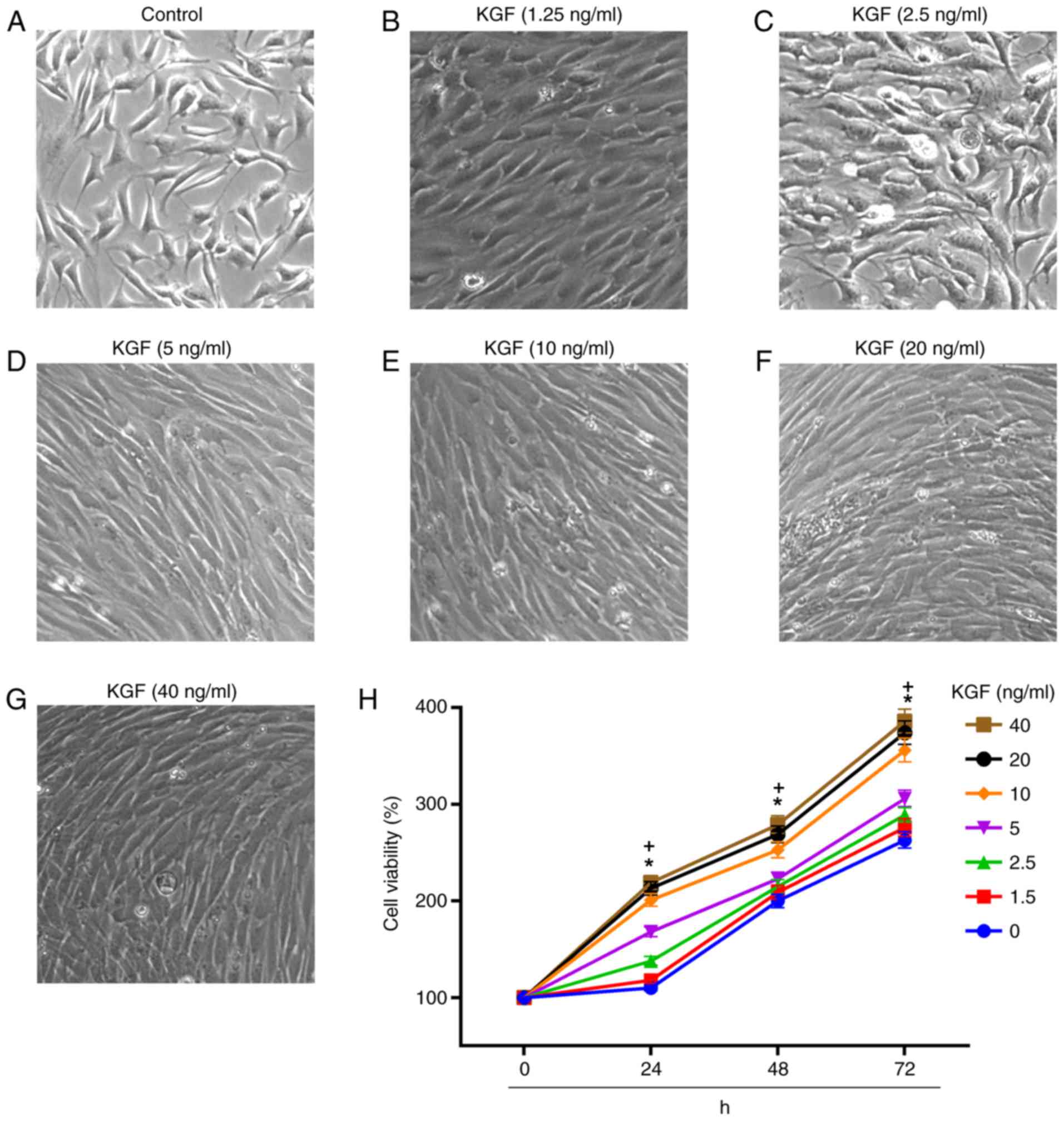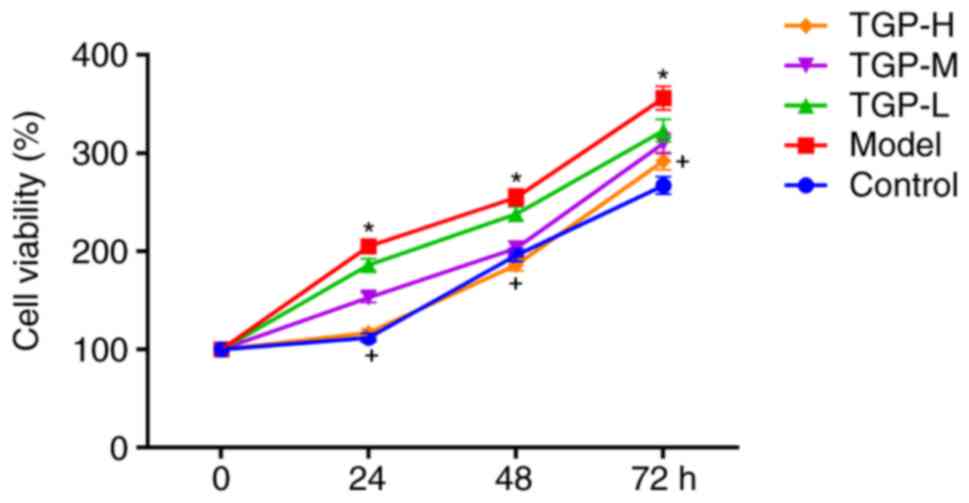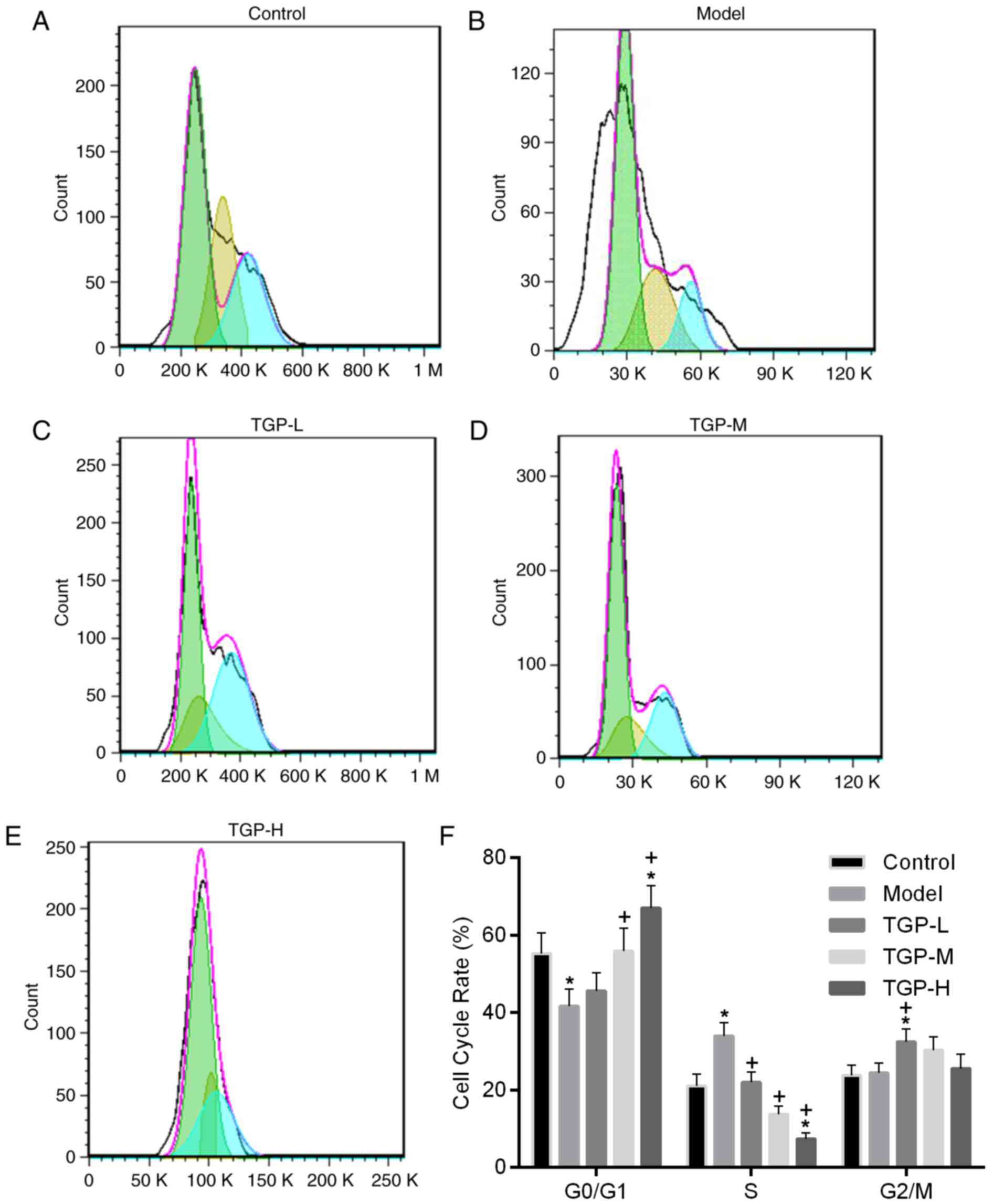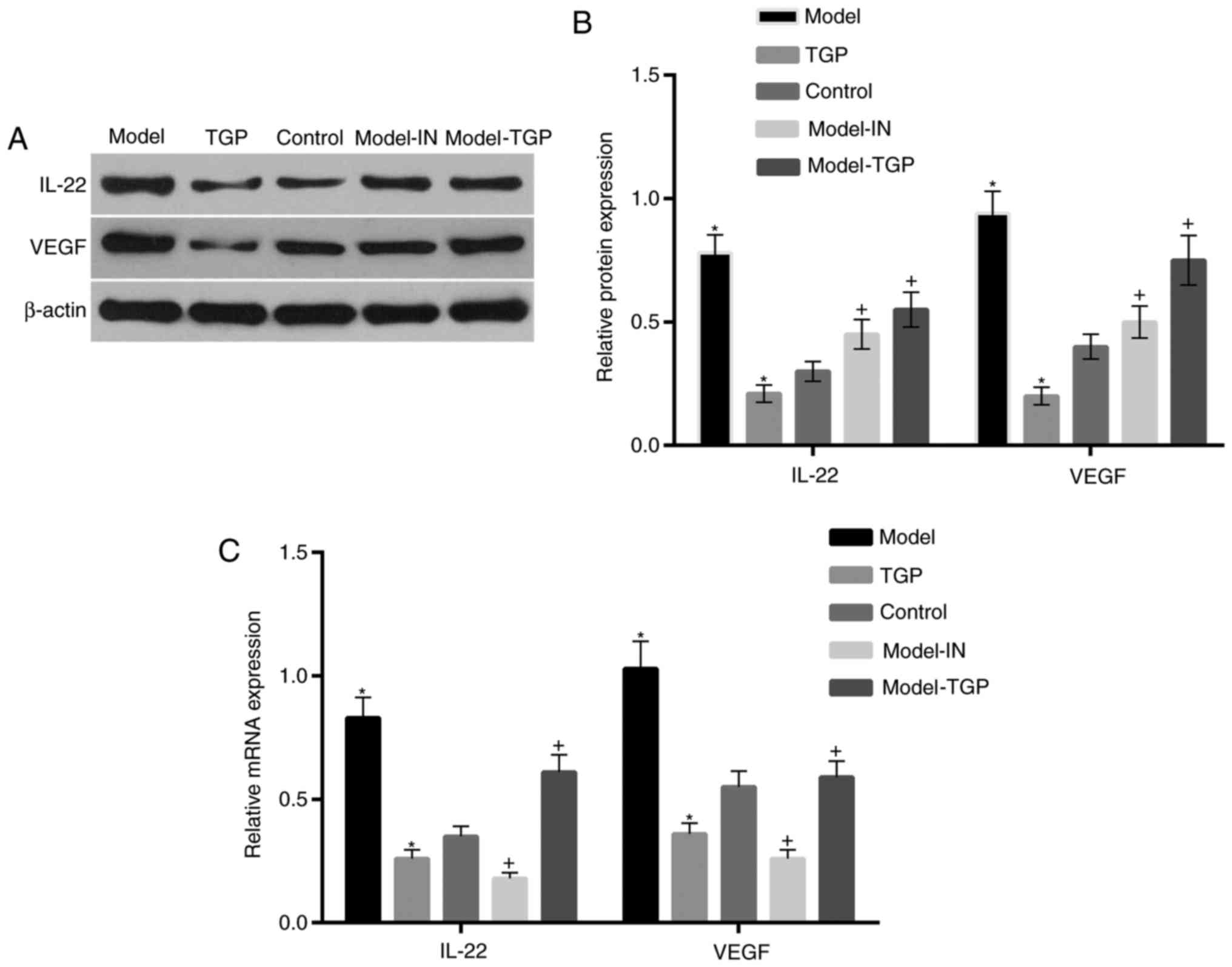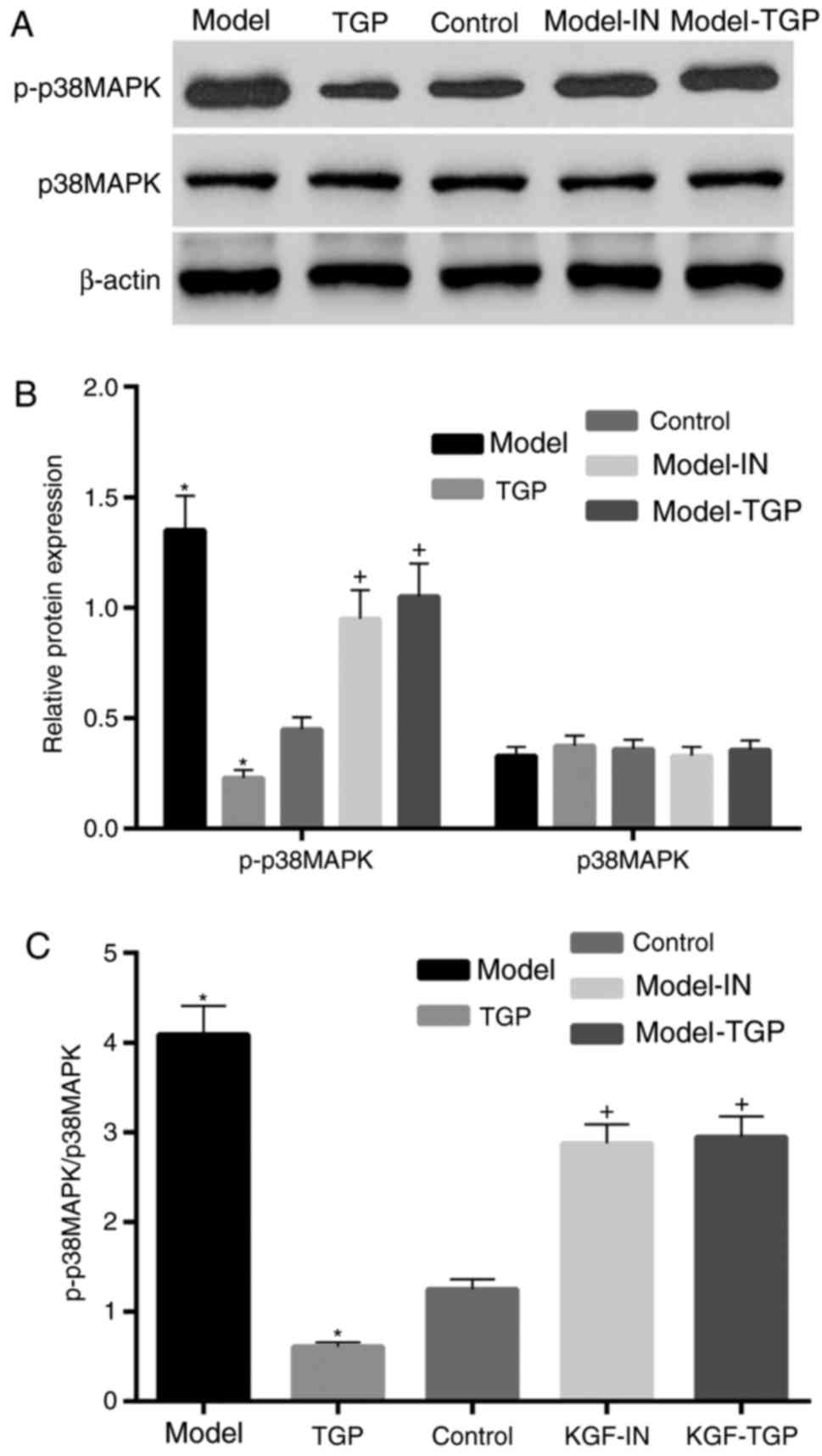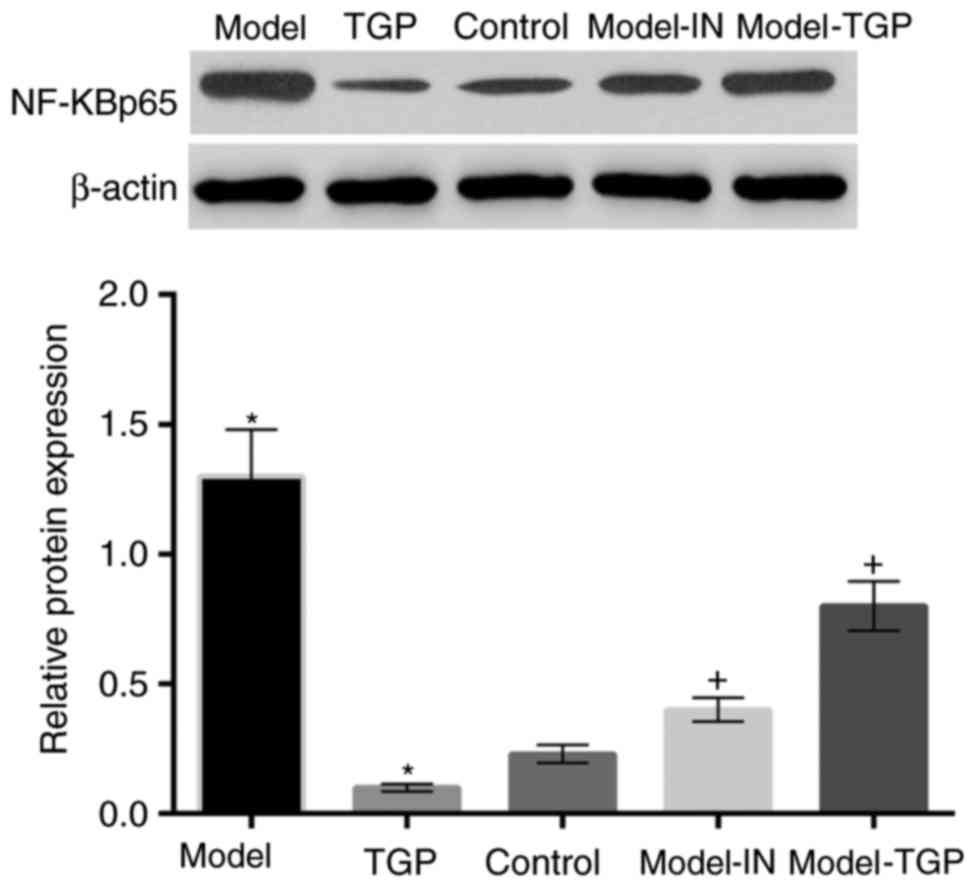|
1
|
Bagel J: Topical therapies for the
treatment of plaque psoriasis. Cutis. 84 4 Suppl:S3–S13. 2009.
|
|
2
|
Dedhar S, Hannigan G, Hunt DWC, Tao JS and
Fazli L: Treatment of inflammatory diseases including psoriasis. US
Patent 37863429 B2. Filed November 30, 2001; issued January 4.
2011.
|
|
3
|
Xia JX, Mei XL, Zhu WJ, Li X, Jin XH, Mou
Y, Yu K, Wang YY and Li QF: Effect of FGF10 monoclonal antibody on
psoriasis-like model in guinea pigs. Int J Clin Exp Pathol.
7:2219–2228. 2014.PubMed/NCBI
|
|
4
|
Feliciani C, Gupta AK and Sauder DN:
Keratinocytes and cytokine/growth factors. Crit Rev Oral Biol Med.
7:300–318. 1996. View Article : Google Scholar : PubMed/NCBI
|
|
5
|
Zeng X, Zhao J, Wu X, Shi H, Liu W, Cui B,
Yang L, Ding X and Song P: PageRank analysis reveals topologically
expressed genes correspond to psoriasis and their functions are
associated with apoptosis resistance. Mol Med Rep. 13:3969–3976.
2016. View Article : Google Scholar : PubMed/NCBI
|
|
6
|
Carter EL, O'Herrin S, Woolery C and
Longley Jack B: Epidermal stem cell factor augments the
inflammatory response in irritant and allergic contact dermatitis.
J Inv Dermatol. 128:1861–1863. 2008. View Article : Google Scholar
|
|
7
|
Cather JC, Latremouille-Viau D, Horn EJ
and Bao Y: Psoriasis is significantly associated with lower rates
of pregnancy and live births. J Am Acad Dermatol. 66:AB2002012.
|
|
8
|
Thomas J, Jacobson GA, Narkowicz CK,
Peterson GM, Burnet H and Sharpe C: Toenail onychomycosis: An
important global disease burden. J Clin Pharm Ther. 35:497–519.
2010. View Article : Google Scholar : PubMed/NCBI
|
|
9
|
Kubo T, Hatton RD, Oliver J, Liu X, Elson
CO and Weaver CT: Regulatory T cell suppression and anergy are
differentially regulated by proinflammatory cytokines produced by
TLR-activated dendritic cells. J Immunol. 173:7249–7258. 2004.
View Article : Google Scholar : PubMed/NCBI
|
|
10
|
de Boer OJ, van der Loos CM, Hamerlinck F,
Bos JD and Das PK: Reappraisal of in situ immunophenotypic analysis
of psoriasis skin: Interaction of activated HLA-DR+ immunocompetent
cells and endothelial cells is a major feature of psoriatic
lesions. Arch Dermatol Res. 286:87–96. 1994. View Article : Google Scholar : PubMed/NCBI
|
|
11
|
Strain AJ, Mcguinness G, Rubin JS and
Aaronson SA: Keratinocyte growth factor and fibroblast growth
factor action on DNA synthesis in rat and human hepatocytes:
Modulation by heparin. Exp Cell Res. 210:253–259. 1994. View Article : Google Scholar : PubMed/NCBI
|
|
12
|
Yamamoto T, Matsuda Y, Kawahara K, Naito Z
and Ishiwata T: Keratinocyte growth factor stimulates growth of MIA
PaCa-2 cells through extracellular signal-regulated kinase
phosphorylation. Oncol Lett. 3:307–310. 2012. View Article : Google Scholar : PubMed/NCBI
|
|
13
|
Higashiyama S, Abraham JA, Miller J,
Fiddes JC and Klagsbrun M: A heparin-binding growth factor secreted
by macrophage-like cells that is related to EGF. Science.
251:936–939. 1991. View Article : Google Scholar : PubMed/NCBI
|
|
14
|
Li M: KGF-1 and KGF receptor expression in
human periodontal disease and in vitro
microwounding-associated-ligand-independent KGFR activation.
2007.http://hdl.handle.net/2429/418
|
|
15
|
Putnins EE, Firth JD, Lohachitranont A,
Uitto VJ and Larjava H: Keratinocyte growth factor (KGF) promotes
keratinocyte cell attachment and migration on collagen and
fibronectin. Cell Adhes Commun. 7:211–221. 1999. View Article : Google Scholar : PubMed/NCBI
|
|
16
|
Wang K, Wu Y-G, Su J, Zhang JJ, Zhang P
and Qi XM: Total glucosides of paeony regulates JAK2/STAT3
activation and macrophage proliferation in diabetic rat kidneys. Am
J Chin Med. 40:521–536. 2012. View Article : Google Scholar : PubMed/NCBI
|
|
17
|
Harada M: Pharmacological studies on herb
paeony root. IV. Analysis of therapeutic effects of paeony- and
licorice-containing frequent prescriptions in Chinese medicine and
comparison with effects of experimental pharmacological tests.
Yakugaku Zasshi. 89:899–908. 1969.(In Japanese). View Article : Google Scholar : PubMed/NCBI
|
|
18
|
Zhang ZG: Antianxiety and sleep disorder
improving use of albiflorin or metabolite thereof in. Patent EP
2644198 A1. Filed November 9, 2011; issued October 2. 2013.
|
|
19
|
Li Y, Cheng H, Zuo XB, Sheng YJ, Zhou FS,
Tang XF, Tang HY, Gao JP, Zhang Z, He SM, et al: Association
analyses identifying two common susceptibility loci shared by
psoriasis and systemic lupus erythematosus in the Chinese Han
population. J Med Genet. 50:812–818. 2013. View Article : Google Scholar : PubMed/NCBI
|
|
20
|
Zhang HF, Xiao WG and Hou P: Clinical
study of total glucosides of paeony in patients with systemic lupus
erythematosus. Zhongguo Zhong Xi Yi Jie He Za Zhi. 31:476–479.
2011.(In Chinese). PubMed/NCBI
|
|
21
|
Wang SL, Wang JP and Bian H: Clinical
observation on total glucosides of paeony combined with
sulfasalazine in treatment of ankylosing spondylitis. Zhongguo
Zhong XI Yi Jie He Za Zhi. 27:217–219. 2007.(In Chinese).
PubMed/NCBI
|
|
22
|
Chang Y, Wei W, Zhang L and Xu HM: Effects
and mechanisms of total glucosides of paeony on synoviocytes
activities in rat collagen-induced arthritis. J Ethnopharmacol.
121:43–48. 2009. View Article : Google Scholar : PubMed/NCBI
|
|
23
|
Jia XY, Chang Y, Sun XJ, Wu HX, Wang C, Xu
HM, Zhang L, Zhang LL, Zheng YQ, Song LH and Wei W: Total
glucosides of paeony inhibit the proliferation of fibroblast-like
synoviocytes through the regulation of G proteins in rats with
collagen-induced arthritis. Int Immunopharmacol. 18:1–6. 2014.
View Article : Google Scholar : PubMed/NCBI
|
|
24
|
Zhou Y, Li J, Kong F, Zhang H, Fang X,
Chen Z, Wang G and Li X and Li X: Clinical and immunological
consequences of total glucosides of paeony treatment in Sjögren's
syndrome: A randomized controlled pilot trial. Int Immunopharmacol.
39:314–319. 2016. View Article : Google Scholar : PubMed/NCBI
|
|
25
|
Westra J, Harmsen MC, van Rijswijk MH and
Limburg PC: Effect of P38 mapkinase inhibitor RWJ-67657 on
proinflammatory mediators produced by IL-1β-and/or TNFα-stimulated
rheumatoid synovial fibroblasts. Arthritis Res. 4 Suppl 1:S452002.
View Article : Google Scholar
|
|
26
|
Micallef L, Belaubre F, Pinon A,
Jayat-Vignoles C, Delage C, Charveron M and Simon A: Effects of
extracellular calcium on the growth-differentiation switch in
immortalized keratinocyte HaCaT cells compared with normal human
keratinocytes. Exp Dermatol. 18:143–151. 2009. View Article : Google Scholar : PubMed/NCBI
|
|
27
|
Livak KJ and Schmittgen TD: Analysis of
relative gene expression data using real-time quantitative PCR and
the 2(-Delta Delta C(T)) method. Methods. 25:402–408. 2001.
View Article : Google Scholar : PubMed/NCBI
|
|
28
|
Wang B, Amerio P and Sauder DN: Role of
cytokines in epidermal Langerhans cell migration. J Leukoc Biol.
66:33–39. 1999. View Article : Google Scholar : PubMed/NCBI
|
|
29
|
Yang K, Yin J, Sheng B, Wang Q, Han B, Pu
A, Yu M, Sun L, Xiao W and Yang H: AhR-E2F1-KGFR signaling is
involved in KGF-induced intestinal epithelial cell proliferation.
Mol Med Rep. 15:3019–3026. 2017. View Article : Google Scholar : PubMed/NCBI
|
|
30
|
Nestle FO, Turka LA and Nickoloff BJ:
Characterization of dermal dendritic cells in psoriasis.
Autostimulation of T lymphocytes and induction of Th1 type
cytokines. J Clin Invest. 94:202–209. 1994. View Article : Google Scholar : PubMed/NCBI
|
|
31
|
de Jong R, Bezemer AC, Zomerdijk TP, Van
dp KT, Ottenhoff TH and Nibbering PH: Selective stimulation of T
helper 2 cytokine responses by the anti-psoriasis agent
monomethylfumarate. Eur J Immunol. 26:2067–2074. 1996. View Article : Google Scholar : PubMed/NCBI
|
|
32
|
Zaba LC, Fuentesduculan J, Eungdamrong NJ,
Abello MV, Novitskaya I, Pierson KC, Gonzalez J, Krueger JG and
Lowes MA: Psoriasis is characterized by accumulation of
immunostimulatory and Th1/Th17 cell-polarizing myeloid dendritic
cells. J Invest Dermatol. 129:79–88. 2009. View Article : Google Scholar : PubMed/NCBI
|
|
33
|
Kanai Y, Satoh T, Igawa K and Yokozeki H:
Impaired expression of Tim-3 on Th17 and Th1 cells in psoriasis.
Acta Derm Venereol. 92:367–371. 2012. View Article : Google Scholar : PubMed/NCBI
|
|
34
|
Harden JL, Krueger JG and Bowcock AM: The
immunogenetics of psoriasis: A comprehensive review. J Autoimmun.
64:66–73. 2015. View Article : Google Scholar : PubMed/NCBI
|
|
35
|
Works MG, Yin F, Yin CC, Yiu Y, Shew K,
Tran TT, Dunlap N, Lam J, Mitchell T, Reader J, et al: Inhibition
of TYK2 and JAK1 ameliorates imiquimod-induced psoriasis-like
dermatitis by inhibiting IL-22 and the IL-23/IL-17 axis. J Immunol.
193:3278–3287. 2014. View Article : Google Scholar : PubMed/NCBI
|
|
36
|
Raychaudhuri SP: Role of IL-17 in
psoriasis and psoriatic arthritis. Clin Rev Allergy Immunol.
44:183–193. 2013. View Article : Google Scholar : PubMed/NCBI
|
|
37
|
Qin S, Wen J, Bai XC, Chen TY, Zheng RC,
Zhou GB, Ma J, Feng JY, Zhong BL and Li YM: Endogenous n-3
polyunsaturated fatty acids protect against imiquimod-induced
psoriasis-like inflammation via the IL-17/IL-23 axis. Mol Med Rep.
9:2097–2104. 2014. View Article : Google Scholar : PubMed/NCBI
|
|
38
|
Zheng Y, Danilenko DM, Valdez P, Kasman I,
Eastham-Anderson J, Wu J and Ouyang W: Interleukin-22, a T(H)17
cytokine, mediates IL-23-induced dermal inflammation and
acanthosis. Nature. 445:648–651. 2007. View Article : Google Scholar : PubMed/NCBI
|
|
39
|
Shibuya M: Involvement of the
VEGF-Flt-receptor family in angiogenesis. Nihon Yakurigaku Zasshi.
107:119–131. 1996. View Article : Google Scholar : PubMed/NCBI
|
|
40
|
Kwon YW, Kim KW, Jang HS, Kim MB, Oh CK
and Kwon KS: Insulin-like growth factor-II (IGF-II) induces
vascular endothelial growth factor (VEGF) expression through IGFR-1
and ERK1/2 activation in psoriasis. Korean J Dermatol. 42:728–734.
2004.
|
|
41
|
Verdes D, Popescu R, Gotia SR, Gotia L,
Filimon MN and Karabitsakos T: VEGF and VEGFRs expression in
psoriasis lesions. Curr Opinion Biotechnol. 22:S1142011. View Article : Google Scholar
|
|
42
|
Meki AR and Al-Shobaili H: Serum vascular
endothelial growth factor, transforming growth factor β1 and nitric
oxide levels in patients with psoriasis vulgaris: Their correlation
to disease severity. J Clin Lab Anal. 28:496–501. 2014. View Article : Google Scholar : PubMed/NCBI
|
|
43
|
Mehta PB, Robson CN, Neal DE and Leung HY:
Keratinocyte growth factor activates p38 MAPK to induce stress
fibre formation in human prostate DU145 cells. Oncogene.
20:5359–5365. 2001. View Article : Google Scholar : PubMed/NCBI
|
|
44
|
Aimond F, Rauzier JM, Bony C and Vassort
G: Simultaneous activation of p38 MAPK and p42/44 MAPK by ATP
stimulates the K+ current ITREK in cardiomyocytes. J Biol Chem.
275:39110–39116. 2000. View Article : Google Scholar : PubMed/NCBI
|















